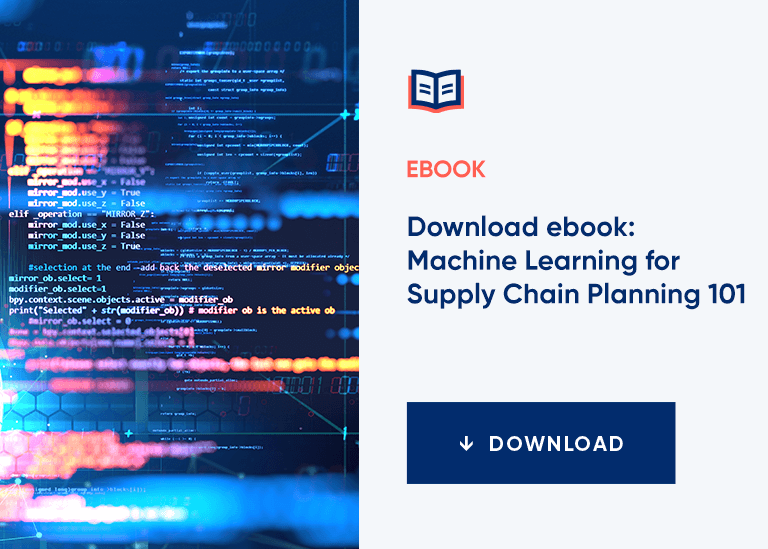Is Your Supply Chain Planning Ready for the “Experience Economy”?
Gartner says we are entering what they call the ‘Experience Economy”, where personalization, speed, agility and the ability to predict consumer trends before they happen will separate the winners from losers (Aspire, Challenge and Transform in a Disruptive World, 27 September 2017).
Gartner cites the customer experience example of guaranteeing that a customer’s equipment never shuts down. Companies like GE are digitally monitoring assets and delivering solutions to guarantee engine availability. HP’s Instant Ink program ensures that printers stay on line. Gartner says, “To guarantee this, the supply chain operating model must change. Instead of simply responding to spare parts orders, it must anticipate potential failure and orchestrate spare parts and service across a partner ecosystem to prevent downtime.”
“Supply chains need to deliver new types of customer experiences, and they will do so through virtual ecosystems that are powered by new digital technologies, including artificial intelligence (AI),” says Gartner.
AI systems boosts planning agility by supporting decision-making in highly complex, changing environments, all the time getting smarter as they acquire more human knowledge and context. They vastly improve predictive capabilities by deriving insights from huge and diverse data sources including social feeds, weather forecasts and peer reviews. AI technologies have been around in large, expensive mainframe environments. What’s changed over the past decade is that IT infrastructure has become scalable, powerful and affordable enough to support mainstream adoption.
Many supply chain executives in consumer goods and retail companies grappling with the Experience Economy still hear objections that AI and machine learning technologies are futuristic. If this sounds familiar, here are four reasons to move ahead in adopting AI as part of your supply chain or demand planning:
- Early adopters started seven years ago – We began enhancing our planning software with machine learning technologies seven years ago, well before the hype around AI was in full swing. We have worked with manufacturers such as Aston Martin, Granarolo and Lennox Industries who enhanced their supply chain planning with machine learning to achieve dramatic improvements.Aston Martin is a traditional company adapting to the Experience Economy. In previous years when the company mainly served a British clientele, customers accepted long waiting times as the tradeoff for high quality. Today the company serves an international clientele of demanding, high-net worth individuals who demand spare parts that conform to the highest craftsmanship standards and arrive immediately. Using machine learning enhanced planning to improve forecast accuracy in its spare parts supply chain, Aston Martin is able to meet to the demands of its international customer base while reducing inventory by 18 percent.
- The sooner you start, the greater your lead – The Experience Economy has already arrived, so the race is on. The longer you wait to meet its challenges using disruptive technologies like AI, the further behind market leaders you fall. Delaying on AI is punitive because of the way algorithms get smarter over time. Early adopters like Lennox are refining their algorithms and improving planning outcomes over several years already – and they continue to do so. And according to Gartner, more than 20% of companies in their Supply Chain Top 25 are seeing early results in improved performance and productivity.
- AI supports (not replaces) planning teams – In every situation where our customers have introduced AI, it has served to raise the effectiveness and reputations of supply chain planners. This is because AI’s algorithms handle high-volume, high-speed number crunching and counter intuitive trade-off decisions that humans were never equipped to handle. Intelligent systems free planners up to do their jobs more creatively and effectively, justifying and often elevating their positions.
- No special skills required – Wherever AI technology is mentioned there is often a fear that special in-house skills will be required to manage it. In reality the new generation of intelligent planning technology is usually much easier to work with than spreadsheets and legacy software. That’s because the software handles calculations and data management; planners only need to develop and refine data models with variables like lead time between locations, costs and other business intelligence.
AI technologies for supply chain planning are commercially available and operational, deliver strong outcomes and complement human effort. The sooner your company gets started, the less likely you are to get overtaken by your competitors on the path to the Experience Economy. Be careful not to wait. There will be winners and losers.
Click below for a podcast with ideas on machine learning and social sensing in supply chain planning.







